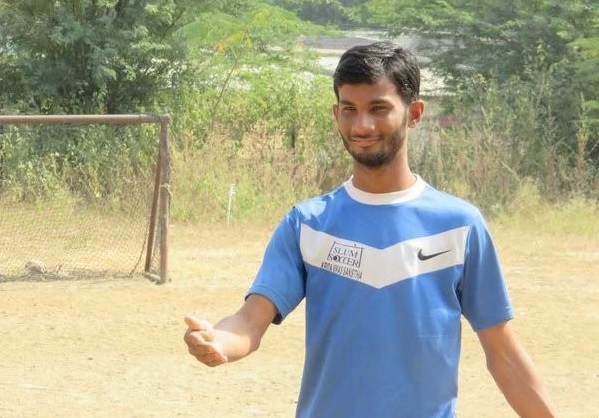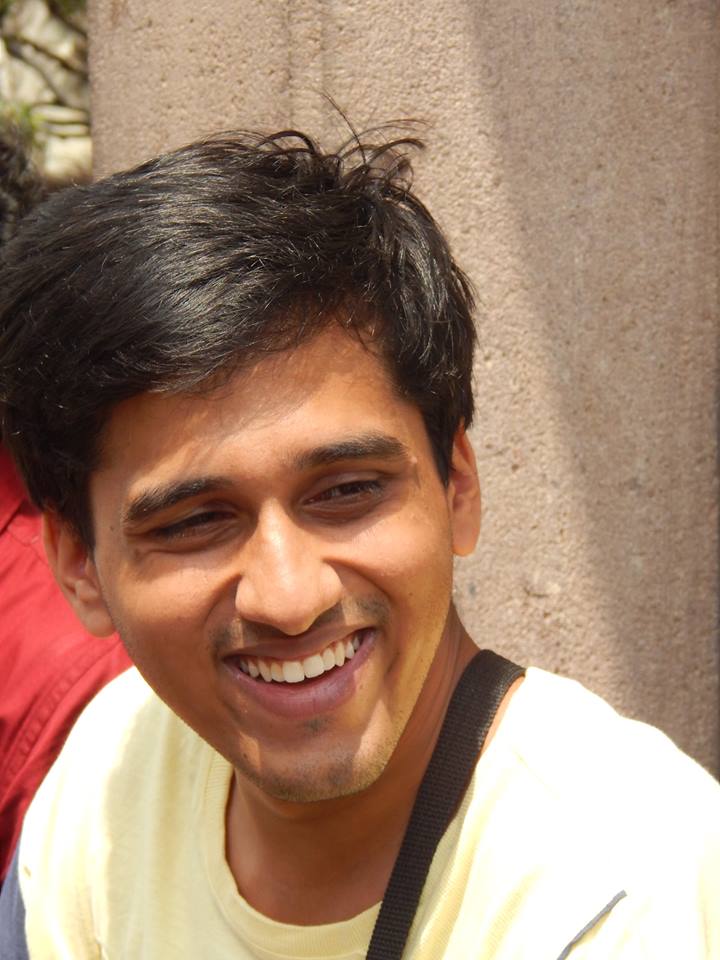From battling abuse and addiction to captaining India at the World Cup: The story of Pankaj Mahajan
The first thing that jumps out at you about the kid is his unconditional politeness and determination to show others respect. He may have just gotten off a long training session in the sweltering heat, but he will still ask if you’ve had lunch or not.

“Good morning Abhishek dada, I have scheduled a post on the Slum Soccer Facebook page for tomorrow. Please check and review.”
“Sure, Pankaj. And please call me Abhishek!”
“Okay, da.”
I’ve had this online conversation with 22-year-old Pankaj multiple times now. The first thing that jumps out at you about the kid is his unconditional politeness and determination to show others respect. He may have just gotten off a long training session in the sweltering heat, but he will still ask if you’ve had lunch or not.
These are trivial things, sure. But after hearing his story, a story somber enough to break full-grown men, his polite demeanor does not seem trivial anymore.
A childhood of abuse and addiction
Pankaj seems to take the hands dealt to him in a very sanguine manner. “You get used to the poverty after a while. But not the beatings.”

 © Slum Soccer
© Slum SoccerBorn in Godhani near Nagpur, Pankaj spent his childhood battling the abusive overtures of an alcoholic father and his own addiction
“My father was a big alcoholic and beat my mother regularly as well. I had a roof over my head, but it felt like a jail more than a home. I often spent my time outside, roaming around in the heat and not doing anything in particular,” he added.
I guess inclement sunlight raining down upon someone pales in comparison to fists.
Football and a world of escape
Pankaj found football amidst sun and serendipity after he ran away from home following a particularly bad beating episode. “My father had hit my mother with an
Homkant
“I was very sad and
Silver linings can crop up without warning in the bleakest of clouds. Pankaj felt the pressure lifting off his youthful but weary shoulders as soon as he started running with the ball. “It was very simple, but still demanded all my focus. While playing football, I didn’t think about the worries of home, my poverty, or my tobacco addiction. For those 20-30 minutes, I was just a kid again,” said Pankaj.
“I got many beatings at the start. My father was angry that such a young person – and his own son – was lecturing him on these matters. But I kept on telling him. I somehow felt that I wasn’t alone anymore.
The fight – and fall – against addiction
As Pankaj started becoming a regular in Slum Soccer camps, he grew more confident in his fight against addiction. “We attended special de-addiction sessions, which not only helped
“I got many beatings at the start. My father was angry that such a young person – and his own son – was lecturing him on these matters. But I kept on telling him. I somehow felt that I wasn’t alone anymore.
“I think with time he started understanding me. He started understanding that the alcohol was bad for him, and that he was down a bad path, and that his own son knew it. I think he also understood that he was too far down that path to fight the addiction. So he committed suicide,” said Pankaj.
The tragic fact is stated with a steadiness and calm that belies Pankaj’s years. Almost as if he’s asking you whether or not you’ve had lunch.
I didn’t know English at all, and could hardly understand what the other teams were saying. We mostly communicated through gestures. I made a mental note to study English properly after coming back. I also wanted to continue in football, come what may.
Poznan pride and captaining India
“I buried myself even deeper in football after this,” Pankaj says. “My father’s death broke me, but a part of me also wanted to make sure that I do not let my life go down the same path. I needed to do something useful. I had to.
“The best moment of my life was when I attended the Homeless World Cup in Poznan in 2013. I was captain of the men’s team, and it was a great feeling when people asked our camp who their captain was and they pointed towards me. I played as a left forward, and our team finished 29th in that tournament, the men team’s best finish yet.
But along with exhilaration came the realization of gaps to be filled. “I didn’t know English at all, and could hardly understand what the other teams were saying. We mostly communicated through gestures. I made a mental note to study English properly after coming back. I also wanted to continue in football, come what may.”
After returning from Poznan, Pankaj started a BPE (Bachelor’s in Physical Education) which he completed this year. Slum Soccer also helped send him to Vietnam for an Adidas Coaches Training Program. His English is very impressive now, with his scheduled posts on the Facebook page getting approved sans changes.
Get set Glasgow

 © Slum Soccer
© Slum SoccerPankaj has his fingers in many footballing pies now. He takes care of Slum Soccer’s Shakti Girls program, and helps Homkant set up camps, organize tournaments, and deliver coaching sessions. His own story serves as an inspiration to every member of the current team training for the Homeless World Cup to be held in Glasgow next month.
“Although I am an assistant coach, my dream is to one day go back to the Homeless World Cup as head coach of the Indian teams. I would like to be associated with the competition throughout my life.”
With resolve that breaks mountains and humble poise that
“Thank you, Abhishek da!”
If you would like to help more stories like Pankaj’s reach fruition, please contribute to Team India’s cause at the Homeless World Cup. You can donate here: http://slumsoccer.ketto.org/homelessworldcup
These Indian kids can create footballing history, but they need your help. You can help Slum Soccer send 20 of our most talented footballers to represent INDIA at the Homeless World Cup at Glasgow. Click here to know more.

Comments
Sign up or log in to your account to leave comments and reactions
0 Comments